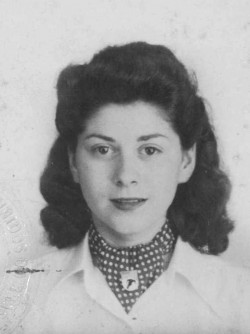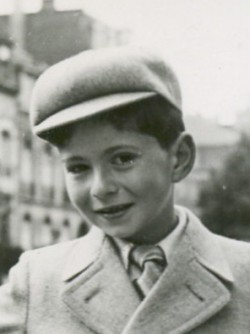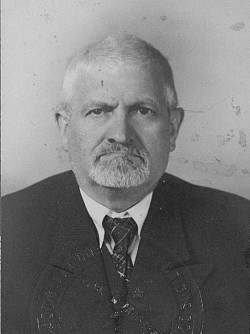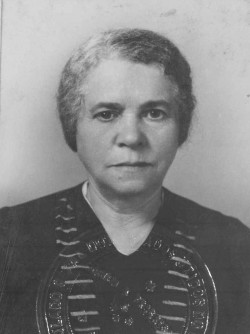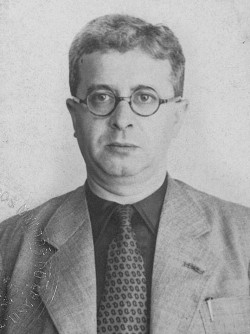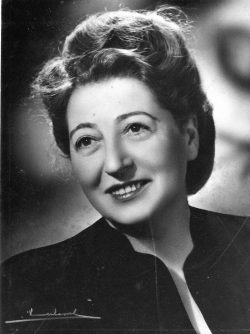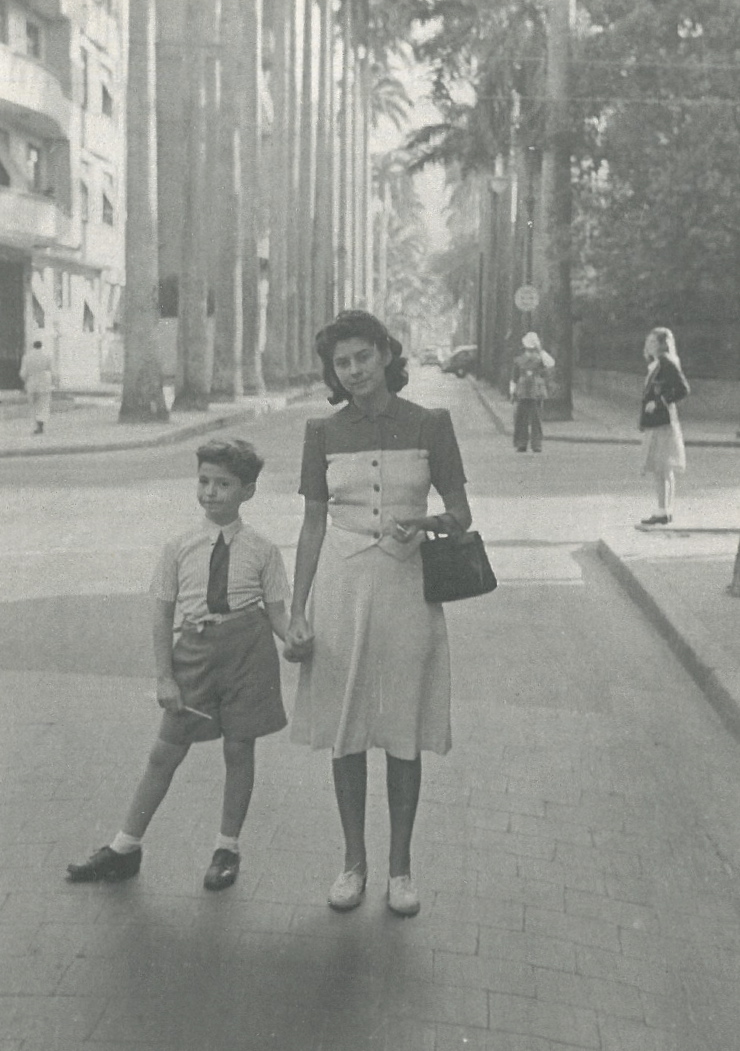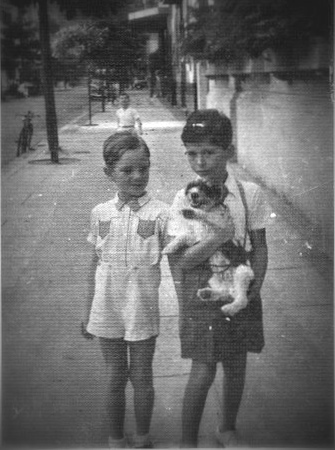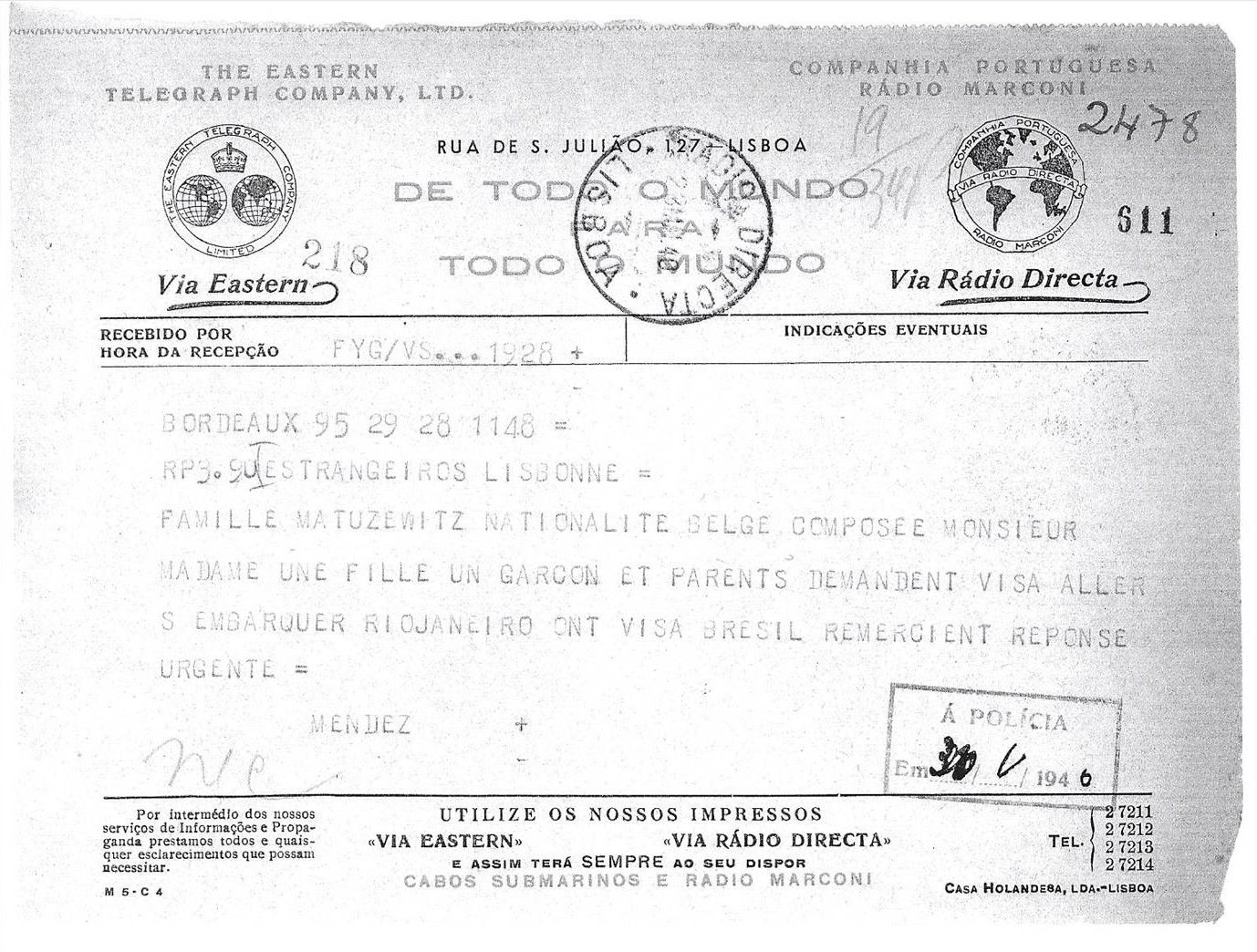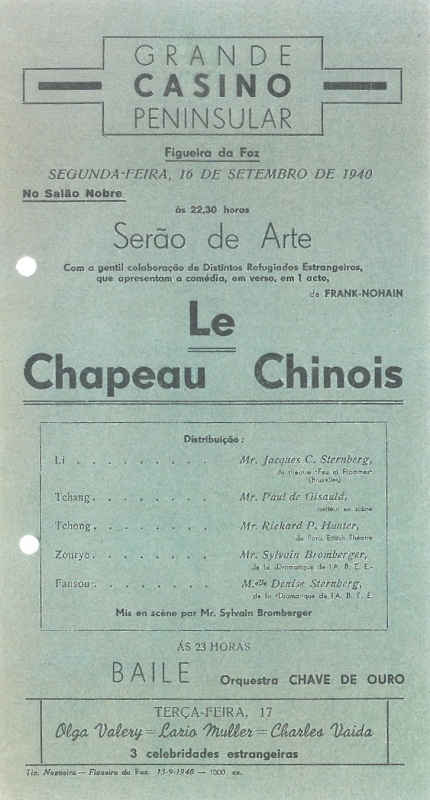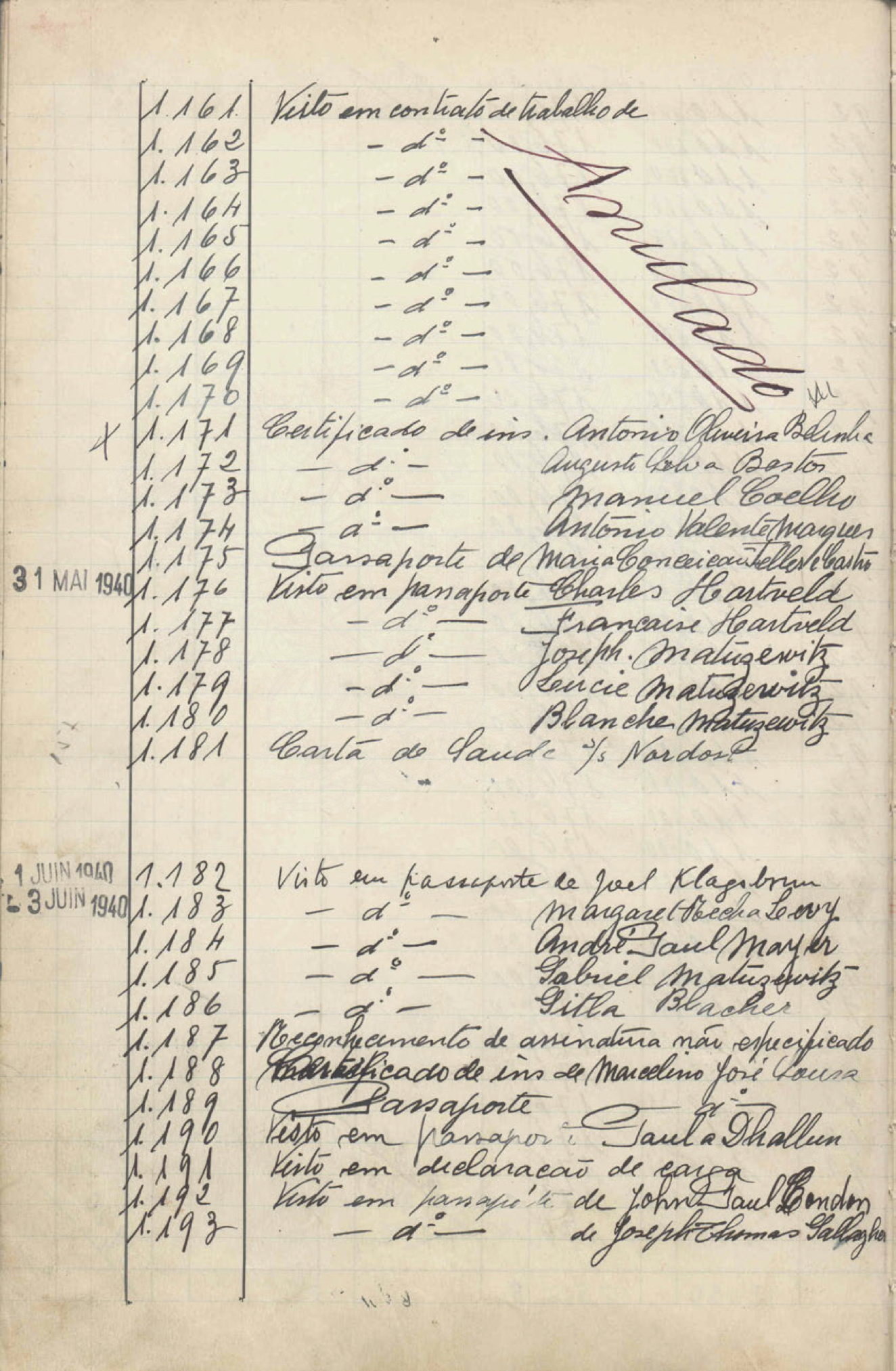Matuzewitz/Sternberg
Visa Recipients
- MATUZEWITZ, Blanche P A
Age 16 | Visa #1180 - MATUZEWITZ, Charles V P
Age 6 - MATUZEWITZ, Daniel Charles V P A T
Age 7 - MATUZEWITZ, Gabriel P A
Age 72 | Visa #1185 - MATUZEWITZ, Gitla Rezla née BLACHER P A
Age 66 | Visa #1186 - MATUZEWITZ, Joseph P A
Age 46 | Visa #1178 - MATUZEWITZ, Lucie née APPELBAUM P A T
Age 43 | Visa #1179 - STERNBERG, Cheina Feigel (Fanny) née MATUZEWITZ P
Age 47 - STERNBERG, Denise P A
Age 16 - STERNBERG, Jacques Clément
P A
Age 19 - STERNBERG, Solomon P
Age 54 - STERNBERG, Sylvain P
Age 12
About the Family
The MATUZEWITZ family fled Belgium on May 10, 1940. They boarded the last train to Paris, and then continued south to Bordeaux. Charles, age 6, was separated from his parents and sister by the bombing and didn't see them again for a year and a half; he was together with his grandparents and extended family during the exodus.
The MATUZEWITZ family obtained visas from Aristides de Sousa Mendes in Bordeaux on May 31 and June 3, 1940 after a chance encounter on the streets of Bordeaux between Joseph MATUZEWITZ and Rabbi Chaim KRUGER, Sousa Mendes's right-hand man.
In Portugal the family lived in Coimbra, Lisbon, and Figueira da Foz. Joseph and Lucie MATUZEWITZ subsequently emigrated to Brazil on the vessel Santarem in August 1940 with their children Blanche and Daniel, and Gabriel and Gitla MATUZEWITZ followed on the Serpa Pinto with their grandson Charles in November of that year. The family later moved to the United States, accompanied by Henri MATUZEWITZ, oldest child of Joseph and Lucie.
The STERNBERG family obtained their visas in Bayonne on June 22, 1940 and subsequently traveled to New York on the Nea Hellas in October of that year and the Carvalho Araujo in January 1941.
After the war, Gabriel, Gitla, Joseph, Lucie and Henri MATUZEWITZ returned to Europe, while the two younger children, Blanche and Daniel, remained in the U.S. Henri and Daniel changed the family name to MATTIS.
- Videos
- Photos
- Artifacts
- Testimonials
Testimonial of Lucie MATUZEWITZ
1977
We had a very bad night as a bomb fell in the neighborhood of the Eiffel Tower, near our hotel. The next day we decided to leave Paris for Bordeaux....
In Bordeaux, we shared as best we could an old lady's place, awaiting further developments. One day Joseph was approached by a bearded ginger-haired rabbi with long peyot (side curls), therefore a very Orthodox man, who told him a most unusual story.
"Can you imagine—one day, the Portuguese Consul in Bordeaux approached me and said, 'Rabbi, where are you living here?' 'Alas!' I answered, 'I have been sleeping on a bench in the train station's waiting room with my wife and my five children.' 'I understand,' said the Consul, 'that in this town, with all the lies that the Nazis have been blaring out from morning until night, no one dares to provide you with lodging. Therefore, I offer you my hospitality and invite you and your family to stay with me.'
"And what is more," added the rabbi, "during the few days that we have been living in the Consul's home he has been exquisitely kind to me. Moreover he said to me: 'Go to the park where all the refugees who want to leave France are gathered. Tell them that I will give all of them visas for Portugal. I have no right to do so because I have received instructions to grant transit visas only to those people who have visas to go overseas. I know that I shall lose my post, but at least I shall give Portugal, my country, the honor of welcoming Jewish refugees and help wipe out a crime committed in the 1490's when Portugal chased out the Jews, just as Spain had done, because of the Inquisition."
The news of this minor miracle traveled fast in Bordeaux, from one refugee to another, and soon the consul's drawing rooms filled to the brim. He stayed up till all hours of the night distributing visas to all who applied. When I recall those times of poisonous anti-Semitism, fueled by Germany's virulent propaganda, I feel it necessary to relate the story of the courageous help given by the Consul.
Testimonial of DR. DANIEL MATTIS
Salt Lake City, Utah, 2011
On May 10th 1940, the Nazis invaded neutral Belgium. I was 7 years old. On that very day my family, consisting of father, mother, 16-year old sister, uncle, grandparents and others, fled Brussels to avoid almost certain extermination by the brutal Nazi regime. After Paris fell we found ourselves in Bordeaux some weeks later, with countless thousands other refugees. My then 18-year-old brother had taken up resident in Brazil and we had visas for that country which, although technically neutral, welcomed a large number of European refugees. But, how to get to Brazil from landlocked Bordeaux?
My mother wrote in her published memoirs that father met a rabbi in the street, who informed him that the Portuguese consulate was issuing transit visas to all comers, papers that allowed crossing Spain into neutral Portugal provided one ultimately left for some overseas country, which is exactly what we intended to do.
I'll fast-forward the next few decades... Half a lifetime later, in 1980, my wife and I relocated to Salt Lake City where I joined the physics department at the University of Utah and where my wife established an active practice in clinical psychology.
In 1996 we opted, out of curiosity, to attend an event at the Salt Palace that had originated in the Wiesenthal Center of L.A. An audience of several thousand Utahns, including numerous Japanese-Americans and Jewish-Americans, sat side-by-side watching slide shows and movies concerning some unsung heroes of WW II.
Imagine my stupefaction when I learned that one of the heroes was the consul of Portugal in Bordeaux, whose name my mother had either forgotten or had never known: Aristides de Sousa Mendes, the man who had issued the visas that saved our lives. My wife nudged me and said, "Raise your hand and tell the presenter that you were one of those he rescued." Of course I wanted to do it but just at that moment I lost my voice, so great was my emotion at discovering the identity of this person.
I later tried to connect to surviving members of his family but it was all in vain until last year, when our daughter Olivia Mattis (a trained historian and historical detective) used social networks to identify and locate his descendants. Olivia also inaugurated a U.S. foundation to honor the memory of Aristides de Sousa Mendes.



